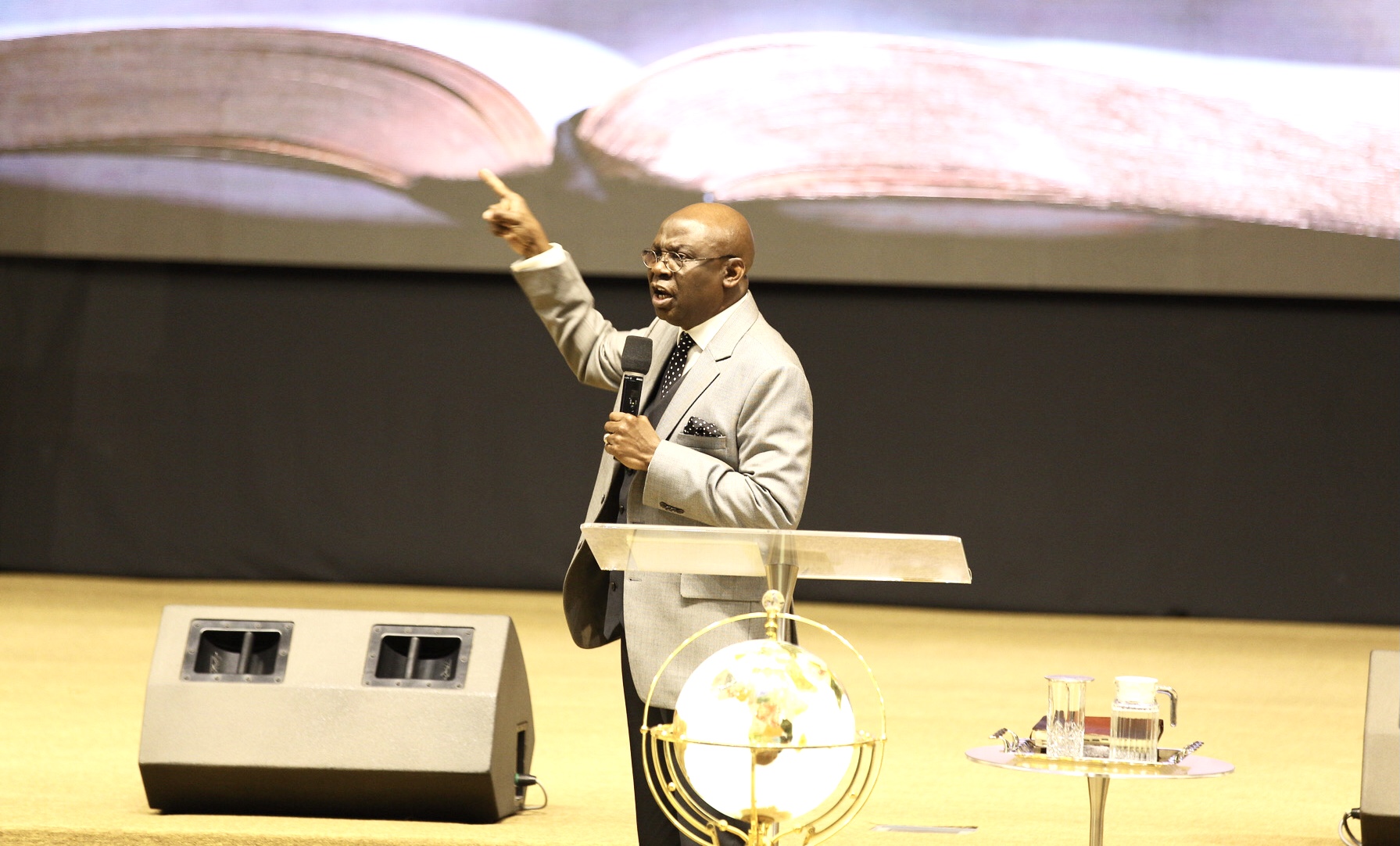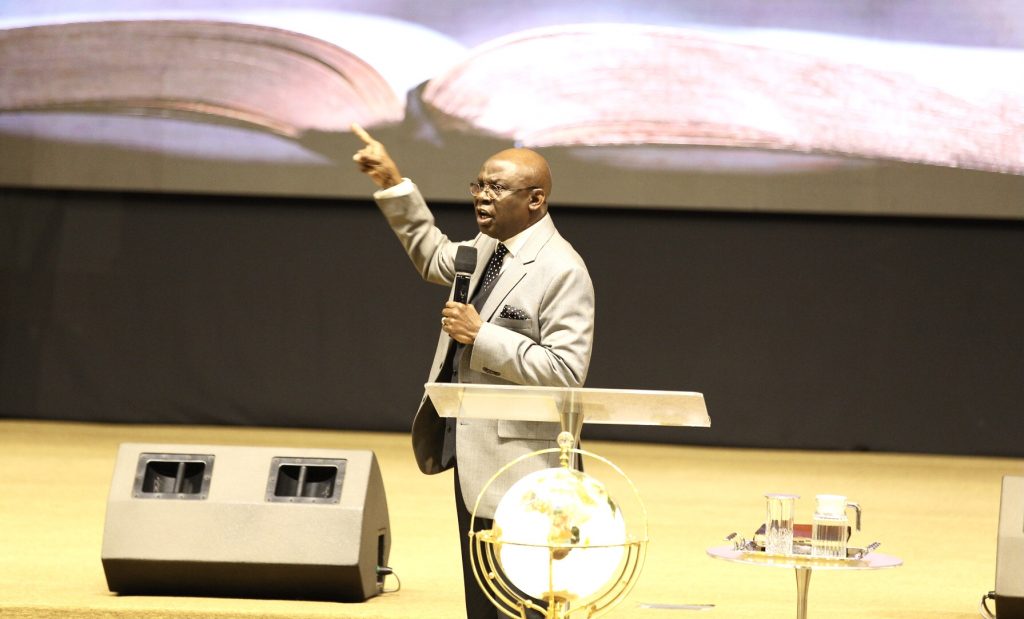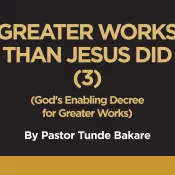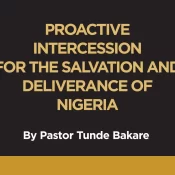
THE BLACK BOX OF NIGERIA’S POLITICS

TEXT OF ADDRESS BY PASTOR ‘TUNDE BAKARE AT THE STATE OF THE NATION BROADCAST ON SUNDAY, OCTOBER 10, 2021 VENUE: THE CITADEL GLOBAL COMMUNITY CHURCH, 30, KUDIRAT ABIOLA WAY, OREGUN, IKEJA, LAGOS, NIGERIA
THEME: THE BLACK BOX OF NIGERIA’S POLITICS
Introduction
Fellow citizens of Nigeria at home and in the diaspora, let me begin by wishing you all a Happy 61st Independence Anniversary once again. More than six decades ago, as our nation’s founding fathers walked the long road to independence, they were under no illusions about the challenges of forging a nation from one of the most diverse groups of people on earth. Even as they took great strides in negotiating the terms of our nationhood, they recognized that independence was only the beginning of the difficult, but not impossible, task of nation-building. They understood that, as momentous as the attainment of independence was for Nigeria, the fight for freedom was not yet won until every Nigerian citizen could stake a claim to the Nigerian nation.
At the 1958 Lancaster House Conference, for instance, Chief Obafemi Awolowo said to the assembly of Nigerian and British representatives:
“Independence for Nigeria in 1960 is imperative, but independence for Nigeria as a corporate entity is not enough. The peoples of Nigeria must at the same time be guaranteed their freedom. We must ensure that, in an independent Nigeria, individual citizens throughout the land enjoy liberty, human dignity, and equality under the law. There must be one Nigeria, with one constitution, and one law for all.”[i]
On October 1, 1960, Prime Minister Tafawa Balewa, while delivering his Independence Day address, described himself, not by the magnificence of the high office he occupied as the prime minister of the most populous black nation in the world, but as a citizen. By so doing, he identified with the Nigerian people he had been elected to serve. In his speech, the prime minister stated:
“Words cannot adequately express my joy and pride at being the Nigerian citizen privileged to accept from Her Royal Highness these Constitutional Instruments which are the symbols of Nigeria’s Independence. It is a unique privilege which I shall remember forever, and it gives me strength and courage as I dedicate my life to the service of our country.”[ii]
On November 16, 1960, in his inaugural address as Nigeria’s first indigenous Governor-General, Dr Nnamdi Azikiwe warned the newly independent nation of the dangers of elevating power above institutions and the rule of law. In his legendary address titled “Respect for the Dignity of Man,” the great Zik said:
“Without respect for the rule of law permeating our political fabric, Nigeria would degenerate into a dictatorship with its twin relatives of tyranny and despotism. I hold that the arbitrary exercise of power without the restraining influence of the rule of law must be condemned as a fundamental departure from constitutional government. Any justification of such untrammelled exercise of political power is, to me, an outrage on human conscience and a gross violation of human rights.”[iii]
In recognition of this right to individual freedoms under the rule of law, irrespective of the diversity of persuasions, the Premier of Northern Nigeria, the Sardauna of Sokoto, Sir Ahmadu Bello, said to the peoples of Northern Nigeria in a unifying message:
“Subject to the overriding need to preserve law and order, it is our determination that everyone should have absolute liberty to practice his belief according to the dictates of his conscience.”[iv]
Admittedly, these founding patriots were far from perfect. Their human fallibilities were evident in some of their actions and inactions. Nevertheless, their legacies of selfless service to their people have not been matched by subsequent generations of Nigerian leaders. Having played their roles in the making of the Nigerian nation, with some tragically losing their lives in the process, our founding patriots bequeathed Nigeria to Nigerians in the hope that each generation would build, in a manner of speaking, “a more perfect union.”[v]
To read this entire speech, download HERE
[i]Lekan Wasiudeen. “Chief Obafemi Awolowo in Constitution Conference 1958 and Commissioning of WNTV 1959.” YouTube Video, 12:48. August 28, 2013. Accessed September 30, 2021. https://www.youtube.com/watch?v=3m_Q60YfVJ8
[ii] Balewa, Abubakar Tafawa. “FLASHBACK: Tafawa Balewa’s 1960 Independence Day speech.” The Cable. October 1, 2020. Accessed September 30, 2021. https://www.thecable.ng/flashback-tafawa-balewas-1960-independence-day-speech
[iii] Azikiwe, Nnamdi. “Respect for Human Dignity: an Inaugural Address.” World Digital Library. November 16, 1960. Accessed September 30, 2021. https://www.wdl.org/en/item/2536/ (See Page 6)
[iv] “Biography of Sardauna.” Arewa Online. Accessed September 30, 2021. https://www.arewaonline-ng.com/sardauna/biography.html
[v] The phrase “a more perfect Union” was originally used in this same context of transgenerational progress in the preamble to the American Constitution: “We the People Preamble.” Constitution Center. Accessed September 30, 2021. https://constitutioncenter.org/interactive-constitution/preamble
All Categories
Recent Posts
GREATER WORKS THAN JESUS DID (3)
A PROACTIVE INTERCESSION FOR NIGERIA – Extraordinary Edition
A PROACTIVE INTERCESSION FOR NIGERIA
Join us for Sunday Worship Service
+234- 911-381-5851
info@thecitadeglobal.org




